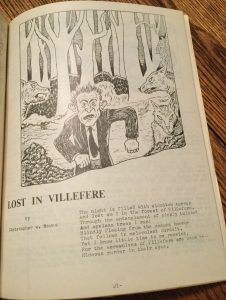Let’s be kinder to one another. After all, we’re just wicked people living among wicked people. Only one thing can give us peace, and that’s a pact of mutual leniency.
—Seneca, in “On Anger”
Seneca’s treatise, On Anger, even though written 2,000 years ago, is very much an essay for today.
Over the last 4 years, I’ve observed anger and hate and vitriol on a scale that I’ve not witnessed in my lifetime. Not even the 1960s were as bad.
What the left has done during the Trump administration, I’m afraid has set a precedent for the right to follow during the coming Biden administration. A spiraling cycle of anger and hate and vitriol no matter who is in the White House or who controls Congress.
I’ve seen people publicly say that they no longer wanted to be friends with anyone who supported Trump. And those who publicly said they weren’t friends with anyone who didn’t support Trump.
Politics is a pretty small reason over which to destroy a friendship.
Just think about this: name 10 presidents from before you were born. Presidents are here today and gone tomorrow. Can you name 5 speakers of the house, or 5 Senate majority leaders. Or 10 vice presidents?
Why destroy a friendship, that can last a lifetime, over something so evanescent as politics? In my mind, that is just plain stupid. But then we are living in an age of stupidity.
In the above quote, Seneca hits the nail on the head. We the people are all the same: wicked. Or to be more contemporary, flawed. Not perfect.
If we are to have any hope of living together, we have to extend to everyone — whether we agree with them or not — a pact of leniency.
What does that mean? Leniency is “the fact or quality of being more merciful or tolerant than expected”.
If we exhibited mercy and tolerance in a greater degree than the person we’re extending it to expected — then we are being lenient. And in being lenient, we aren’t saying, I agree with you. We’re saying, I will be your friend even though I disagree with you. Our friendship is more valuable than the individual views we hold.
We are currently at a place where intolerance is destroying the fabric of our society. There is no longer a place for civil disagreement. When in fact we cannot but help disagreeing with each other over something. No two people ever agree 100% on anything.
I’ve become over the years essentially apolitical. After observing the political process for the past 50+ years, I’ve come to the conclusion that it matters little who is in power. President A does things, and then President B undoes them. It’s a case of 2 steps forwards and 2 steps backwards.
But what I do find alarming is the amount of anger I am seeing freely expressed by people in public and on social media. No society can survive if people do not extend leniency towards each other.
Seneca knew this. He was involved in Imperial Roman politics. He had to endure and survive the anger of emperors. Anger that meant instant death if it turned on you. His wise advice regarding anger is something all of us need to heed today.
You can find Seneca’s excellent treatise in a new translation on Amazon.
There is, in addition, a fine abridged version geared more towards practical application, also to be found on Amazon.
I have both, and both are good. They are highly recommended. And who knows? Perhaps we all can become less angered by what is happening all around us and with events in our daily lives, and find a little peace. And who doesn’t want peace?
Comments are always welcome! And until next time, may you enjoy peace in your life!
Share This!
